Articles

Acceptance
PowerPoint slides from Deborah Bircham from Live Well with Chronic Illness' Webinar 'Acceptance'.
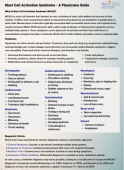
Mast Cell Activation Syndrome - A Physicians Guide
This guide provides an overview of the Symptoms, Diagnostic Criteria, Comorbidities and Management and Treatment of Mast Cell Activation Syndrome.
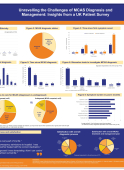
MCAS Life Experiences Survey Results
Unravelling the Challenges of MCAS Diagnosis and Management: Insights from a UK Patient Survey

POTS in Children
PowerPoint slides from Dr. Pramod Nair's webinar 'POTS in Children'.
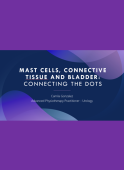
Urology and MCAS
PowerPoint slides from Camilla Gonzalez's webinar 'Urology and MCAS'.

Supporting someone with MCAS at Christmas
A practical festive guide for loved ones, who are supporting those with MCAS at Christmas
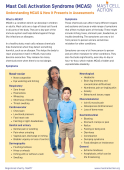
MCAS information for PIP assessors
This resource provides assessors with an overview of MCAS, how it affects daily living, and the support individuals may need, helping ensure assessments are safe, fair and based on an understanding of the condition’s fluctuating nature.

Managing MCAS At Christmas
The festive season can be joyful, but for those living with MCAS, it can also bring extra challenges - new foods, busy gatherings, extra stress and exposure to different things. This guide offers practical ideas to help you plan ahead, look after yourself, and enjoy the parts of Christmas that feel right for you.

Quick Guide to MCAS for Loved-Ones
MCAS is a complex condition and can be hard for our loved-ones to understand. However, their support is crucial for us to be able to manage our condition well. This handy Quick Guide to MCAS is designed to help your loved-one understand MCAS and begin to learn how they can help you. Share this with your loved-ones, so that they can easily understand what MCAS is.
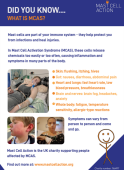
DID YOU KNOW.... What is MCAS?
This poster provides brief facts about MCAS. These are great for sending to friends and family to help them understand or for taking to medical appointments.
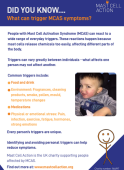
DID YOU KNOW.... What can trigger MCAS symptoms?
This poster provides brief facts around Triggers and MCAS. These are great for sending to friends and family to help them understand or for taking to medical appointments.
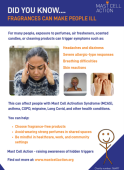
DID YOU KNOW.... Fragrances can make people ill
This poster provides brief facts around fragrances and MCAS. These are great for sending to friends and family to help them understand or for taking to medical appointments.
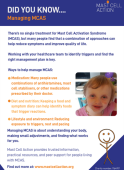
DID YOU KNOW.... Managing MCAS
This poster provides brief facts around managing MCAS. These are great for sending to friends and family to help them understand or for taking to medical appointments.
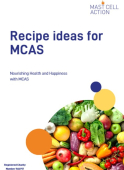
Recipe Ideas for MCAS
From our Nourishing Health & Happiness with MCAS series — simple, nourishing recipes designed to support digestion, comfort, and everyday enjoyment.
Socialising and Eating Out
From our Nourishing Health & Happiness with MCAS series — practical tips for enjoying meals out and social occasions while supporting your health and comfort.
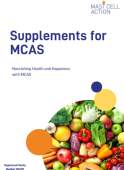
Supplements for MCAS
From our Nourishing Health & Happiness with MCAS series — evidence-informed guidance on supplements that may support wellbeing in MCAS.
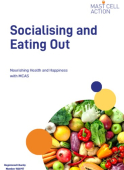
Socialising and Eating Out
From our Nourishing Health & Happiness with MCAS series — practical tips for enjoying meals out and social occasions while supporting your health and comfort.
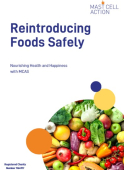
Reintroducing Foods Safely
From our Nourishing Health & Happiness with MCAS series — a gentle guide to reintroducing foods, helping you expand your diet with confidence and care.
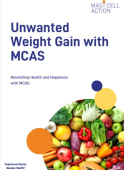
Unwanted Weight Gain with MCAS
From our Nourishing Health & Happiness with MCAS series — explore possible causes of weight changes and find balanced ways to support a healthy body and mind.
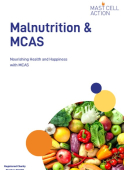
Malnutrition and MCAS
From our Nourishing Health & Happiness with MCAS series — understand the risks of malnutrition with MCAS and learn how to nourish your body safely and effectively.
Become a friend
Sign up to become a Friend of Mast Cell Action so we can keep you up to date on our progress and on how to get involved in our latest campaigns and initiatives.
Donate
Mast Cell Action relies entirely on the generosity of people like you. Please make a donation now and together we can make a difference to those affected by MCAS.







